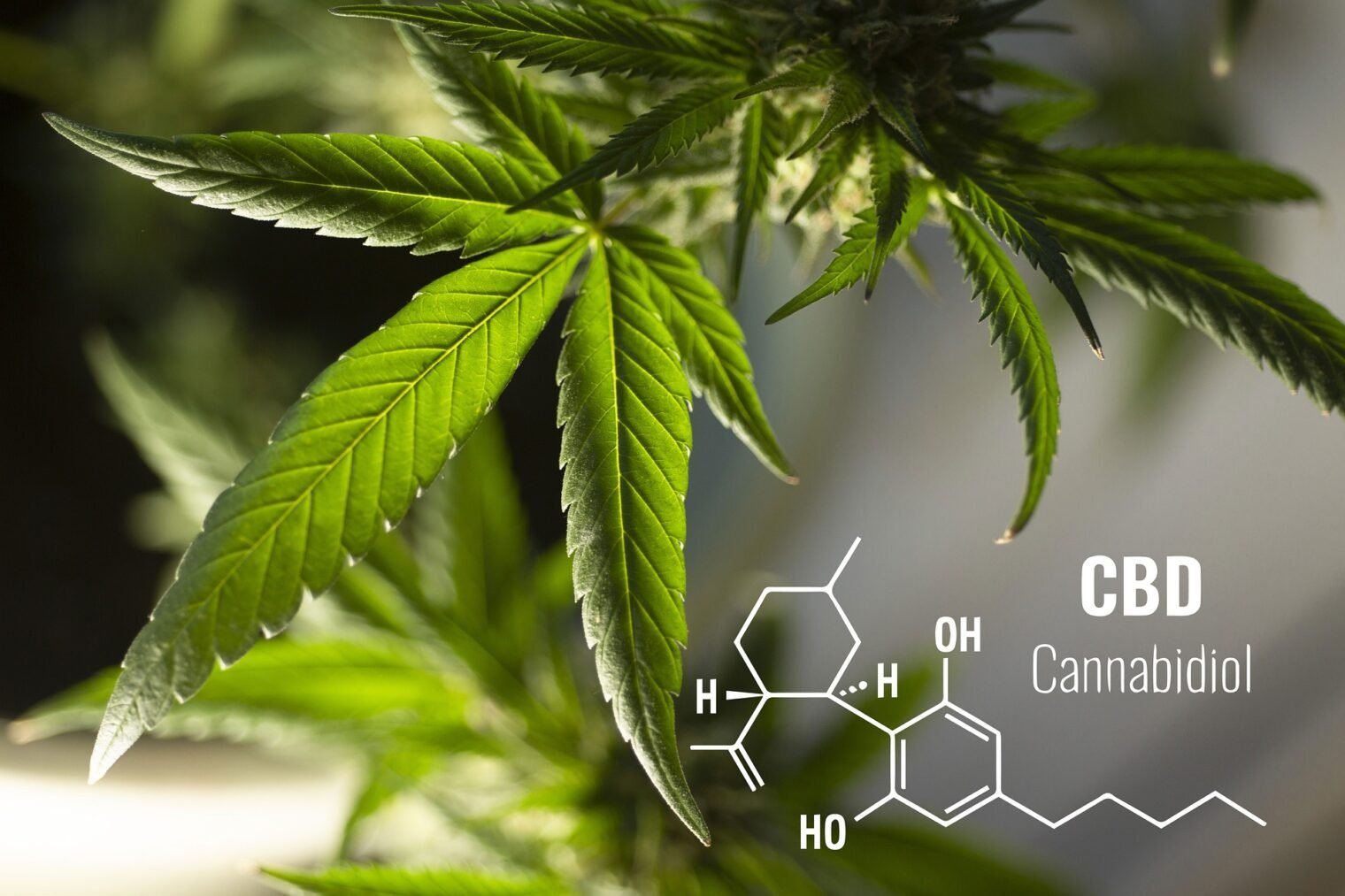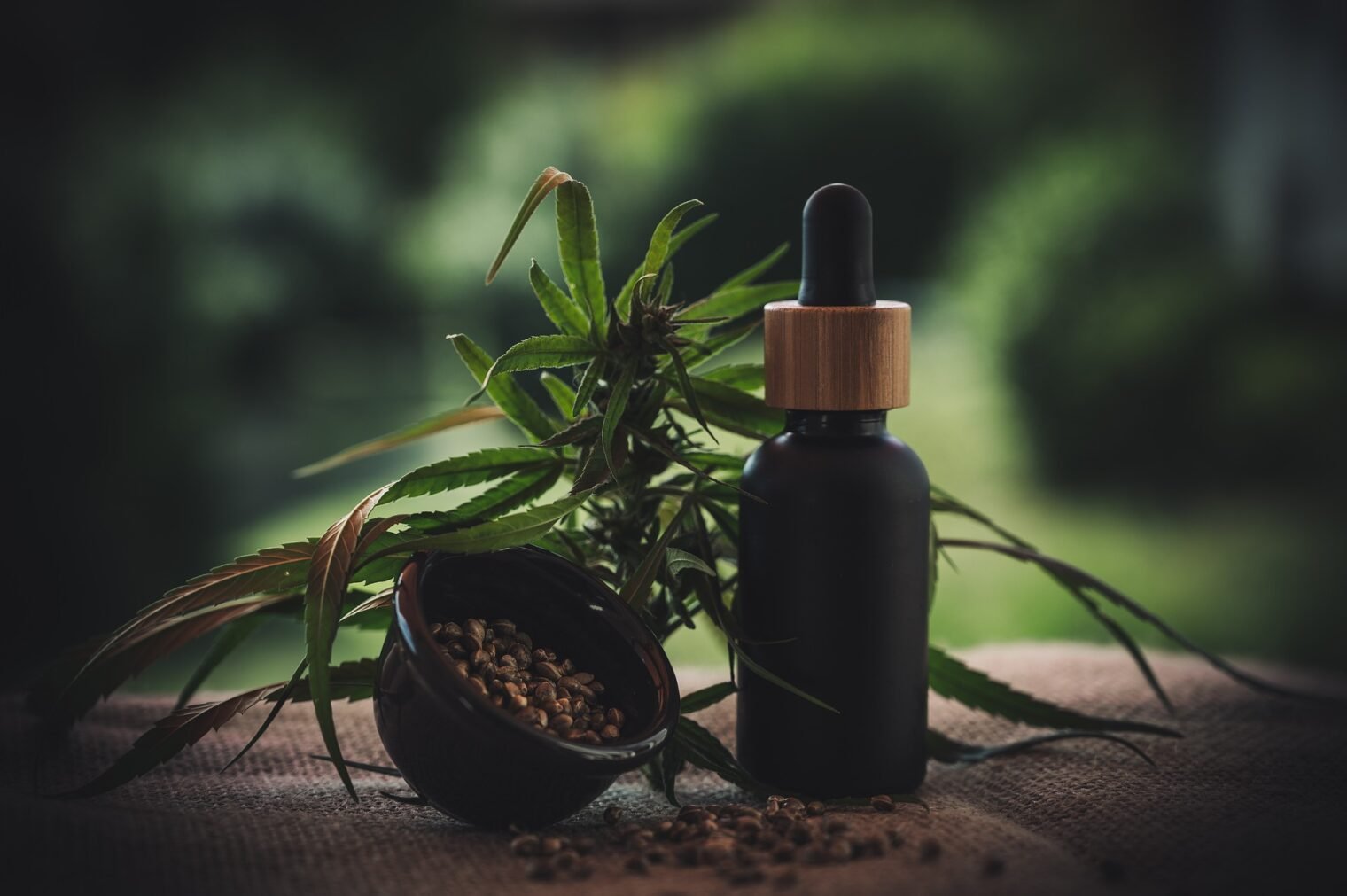The Health Benefits of CBD: Separating Fact from Fiction

Table of Contents
The health benefits of CBD should be shouted from the proverbial rooftops. Many people are searching for natural ways to improve their health. One option that’s gaining attention is CBD, short for cannabidiol. This blog will guide you through the real benefits of CBD and help clear up common misconceptions.
Get ready to learn about the health benefits of CBD and what it can truly do for you.
What is CBD?
Before we learn more about the health benefits of CBD, let’s start at the beginning. CBD, short for cannabidiol, is a naturally occurring compound found in the cannabis plant. It is distinct from marijuana as it does not cause a “high” and is derived from industrial hemp or cannabis plants with low THC levels.
Differentiating from marijuana, cannabis, and hemp
Understanding the difference between marijuana, cannabis, and hemp is crucial when discussing CBD. Cannabis serves as an umbrella term that encompasses all varieties of the plant, including both marijuana and hemp.
While they are from the same plant family, hemp and marijuana have distinct differences mainly in their THC content. Hemp contains very low levels of THC (tetrahydrocannabinol), the compound known for causing the “high” associated with marijuana use.
Because of its minimal THC content, hemp is often used to produce CBD oil that doesn’t lead to intoxication.
Marijuana, on the other hand, has high levels of THC and is primarily used for medical or recreational purposes due to its psychoactive effects. CBD products derived from marijuana might contain more THC compared to those from hemp, making understanding their source important for users concerned about drug testing or psychoactive effects.
Legalization varies significantly depending on whether a CBD product comes from hemp or marijuana, reflecting these differences in chemical composition and usage. It’s important to understand the laws before the health benefits of CBD.
Legality of CBD
CBD legality varies from state to state, as well as at the federal level. It’s important to understand that CBD is legal in some states for medical use or even recreational purposes, while it remains illegal in others.
The 2018 Farm Bill legalized industrial hemp and products derived from it, including CBD with a concentration of less than 0.3% THC. However, individual states can have their own laws regarding the sale and possession of CBD products.
Therefore, consumers should research and be aware of their local regulations before purchasing or using CBD.
Potential Health Benefits of CBD
Let’s take a look at the potential health benefits of CBD and these types of product. CBD may provide relief from pain, anxiety, and seizures. Its potential neuroprotective properties and anti-inflammatory effects are being studied for treating various health conditions.
Pain relief
CBD has shown promise in relieving chronic pain, such as fibromyalgia and muscle spasticity. Its anti-inflammatory properties may also provide relief for those suffering from arthritis or other inflammatory conditions.
Furthermore, CBD’s interaction with the endocannabinoid system in the body can potentially help reduce neuropathic pain, making it a promising option for those seeking natural pain management alternatives.
Studies have suggested that CBD could be an effective treatment for reducing pain associated with conditions like multiple sclerosis and cancer. Additionally, its potential to alleviate anxiety can indirectly contribute to pain relief by helping individuals manage stress and tension that exacerbate physical discomfort.
Mental health disorders
CBD has shown promise in alleviating symptoms of various mental health disorders, including anxiety and depression. Studies have suggested that CBD may help reduce anxiety by interacting with serotonin receptors in the brain, which can contribute to feelings of well-being and happiness.
Additionally, CBD’s potential anti-inflammatory properties may also play a role in addressing certain aspects of mood disorders. The many health benefits of CBD can massively help many people.
Furthermore, research indicates that CBD may exert an antidepressant-like effect by influencing the brain’s endocannabinoid system. This could potentially offer new avenues for individuals seeking natural alternatives to traditional treatments for mental health conditions.
Cancer-related symptoms
CBD has shown potential in alleviating cancer-related symptoms such as pain, nausea, and loss of appetite. Studies suggest that CBD can help manage the side effects of cancer treatments, including chemotherapy-induced nausea and vomiting.
Additionally, some research indicates that CBD may have anti-tumor properties and could potentially inhibit the growth of certain types of cancer cells. These findings offer promise for individuals seeking complementary or alternative approaches to managing cancer-related symptoms.
Furthermore, CBD’s anti-inflammatory properties may contribute to reducing discomfort associated with cancer and its treatments. While more research is needed to fully understand the extent of CBD’s impact on cancer-related symptoms, these preliminary findings underscore its potential role in supporting individuals undergoing cancer treatment.
Neuroprotective properties and health benefits of CBD
CBD exhibits neuroprotective properties, which may benefit those with neurological conditions. Research suggests that CBD may help reduce inflammation in the brain and promote the growth of new neurons, potentially aiding in the treatment of conditions such as Alzheimer’s disease, Parkinson’s disease, and multiple sclerosis. These are really important health benefits of CBD.
These properties also have the potential to protect against nerve damage caused by various factors such as trauma or autoimmune disorders.
The neuroprotective effects of CBD offer promise for individuals seeking alternative treatments for neurological conditions. The potential to reduce inflammation and support neuronal regeneration makes it a focus of ongoing research into its therapeutic applications for various neurodegenerative diseases.
Heart health
CBD may support heart health by reducing inflammation and decreasing blood pressure. Studies suggest that CBD’s anti-inflammatory properties could help reduce the risk of heart disease by combating oxidative stress and preventing damage to the heart.
Additionally, CBD has shown potential in lowering blood pressure, which is a crucial factor in maintaining cardiovascular health. It may also have protective effects on the circulatory system, contributing to overall heart wellness.
Moving on from the potential benefits of CBD for heart health, let’s explore its other promising applications for different medical conditions.
Other potential benefits
Moving beyond heart health, CBD has also shown promise in providing relief for individuals with sleep disorders, anxiety, and fibromyalgia pain. Studies suggest that CBD may help improve sleep quality and reduce symptoms of anxiety and related mental health disorders.
Furthermore, its anti-inflammatory properties offer potential benefits for skincare by addressing various skin conditions. Additionally, ongoing research is exploring the medical benefits of cannabis-derived cannabinoids for managing chronic pain and other inflammatory conditions.
Furthermore, early evidence indicates that CBD may hold promise in supporting overall wellness due to its potential neuroprotective properties. These findings open up a new realm of possibilities for harnessing the therapeutic potential and health benefits CBD beyond its well-established uses in treating specific health conditions.
Side Effects and Drawbacks of CBD
CBD can cause side effects such as dry mouth, diarrhea, reduced appetite, and drowsiness. It may also interact with certain medications, so it’s important to be aware of these potential drawbacks.
Dry mouth
Dry mouth is a common side effect of using CBD. It occurs due to the cannabinoid receptors in the salivary glands being affected, leading to reduced saliva production. This can cause discomfort and difficulty swallowing or speaking.
Staying hydrated and using sugar-free lozenges or gum can help alleviate this symptom when using CBD for its potential health benefits.
In addition, dry mouth may also increase the risk of dental issues such as cavities and oral infections. Practicing good oral hygiene and visiting the dentist regularly are important measures to mitigate these risks while incorporating CBD into your wellness routine for anxiety relief or other potential health benefits.
Diarrhea
CBD can lead to diarrhea in some individuals, especially when taken in high doses. It is essential to be mindful of the potential side effect and adjust the dosage accordingly. If you experience prolonged or severe diarrhea after taking CBD, it is advisable to consult a healthcare professional for further guidance on managing this issue.
Moving forward from the discussion on diarrhea, let’s delve into another side effect of CBD – reduced appetite.
Reduced appetite
CBD has been reported to cause reduced appetite in some individuals. This could be a potential concern for those who are already struggling with appetite or weight management issues.
It’s important to monitor any changes in appetite when using CBD and consult with a healthcare professional if it becomes a significant problem.
Moving on to the next topic, let’s delve into the side effects of drowsiness and fatigue associated with CBD use. We have to understand that the health benefits of CBD are not the full picture.
Drowsiness and fatigue
CBD can cause drowsiness and fatigue in some individuals. It is important to be cautious when using CBD, especially if you need to remain alert or operate heavy machinery. If you experience excessive drowsiness or fatigue while taking CBD, consult with a healthcare professional before continuing use.
Moving on to the potential side effects of CBD, it’s essential to understand its impact on interactions with medications.
Interactions with medications
When taking CBD, it’s crucial to be aware of potential interactions with other medications. CBD can impact the way certain drugs are metabolized in the body, potentially leading to adverse effects or reduced effectiveness.
It’s important to consult with a healthcare professional before incorporating CBD into your routine, especially if you are currently taking prescription medications. This step will help ensure that you can safely navigate any potential interactions and make informed decisions about your health.
Moving forward to “The Bottom Line on CBD,” it’s essential to approach its usage with caution and seek guidance from medical experts. Knowing these things is just as essential as the health benefits of CBD.
The Bottom Line on CBD
Use caution and consult with a healthcare professional before using CBD. Understanding dosage, vetting cannabis products, and recognizing the lack of scientific evidence are crucial aspects to consider.
Use caution and consult with a healthcare professional
When considering the potential health benefits of CBD, it is crucial to seek guidance from a healthcare professional. Consulting with a medical expert can provide personalized advice based on your specific health condition and medication regimen.
This ensures that CBD is used safely and effectively, taking into account any potential interactions or contraindications with existing medications.
Careful consideration and oversight by a healthcare professional can help mitigate the risk of adverse effects and ensure that CBD usage aligns with individual health goals. Healthcare professionals can also offer valuable insights on dosage, administration methods, and monitoring for any emerging side effects or complications related to CBD use.
How to vet and choose CBD products
When vetting and choosing CBD products, it is essential to consider the source of the hemp used in the product. Look for manufacturers that use organic hemp grown in reputable locations to ensure a higher quality and purity of CBD.
Additionally, check for third-party lab testing as it ensures transparency and verifies the potency and purity of the product. Pay attention to extraction methods, favoring products using CO2 extraction for its safety and efficiency.
Finally, consider reading customer reviews and testimonials to gauge the effectiveness of the product. And also the health benefits of CBD.
Lack of scientific evidence of the health benefits of CBD
While there is promising research on the potential health benefits of CBD, it’s important to note that there is still a lack of robust scientific evidence supporting many of these claims.
Although some studies have shown positive results in areas such as pain relief and anxiety management, more comprehensive research is needed to fully understand the long-term effects and efficacy of CBD for various health conditions.
As a result, individuals should approach CBD use with caution and be mindful of the current limitations in scientific evidence.
Moving forward, it’s essential to stay informed about ongoing research efforts and remain open to emerging findings that could provide further clarity on the effectiveness and safety of CBD for different health concerns.
Importance of understanding dosage
Understanding the proper dosage of CBD is crucial for reaping its potential benefits while minimizing risks. It’s essential to start with a low dose and gradually increase until the desired effects are achieved.
Consulting a healthcare professional can provide personalized guidance on finding the right CBD dosage based on individual needs and health conditions, ensuring safe and effective usage.
By understanding the appropriate dosage, individuals can experience improved sleep quality, reduced inflammation, and other potential health benefits without adverse reactions.
It’s also important to note that dosing guidelines may vary depending on the form of CBD used (such as tinctures, capsules, or edibles) and individual factors like body weight and metabolism.
Potential for misuse
Misusing CBD products can lead to adverse effects. Some people may use it inappropriately, assuming that more is better for faster results. Yet, this approach could result in unwanted side effects or interactions with other medications.
Therefore, it’s crucial to use CBD responsibly and according to recommended dosages. Being informed and seeking the guidance of a healthcare professional can help prevent potential misuse of CBD products.
Health Benefits of CBD Summarized
In summary, CBD shows promise for pain relief and managing mental health disorders. Research suggests potential benefits for cancer-related symptoms and heart health. However, it’s important to use caution and consult with a healthcare professional due to potential side effects and lack of scientific evidence.
Understanding dosage and choosing quality products are crucial for maximizing the potential health benefits of CBD while minimizing risks.


